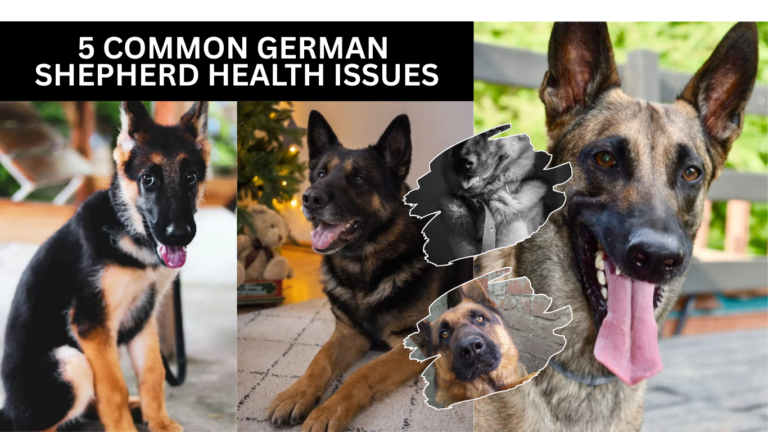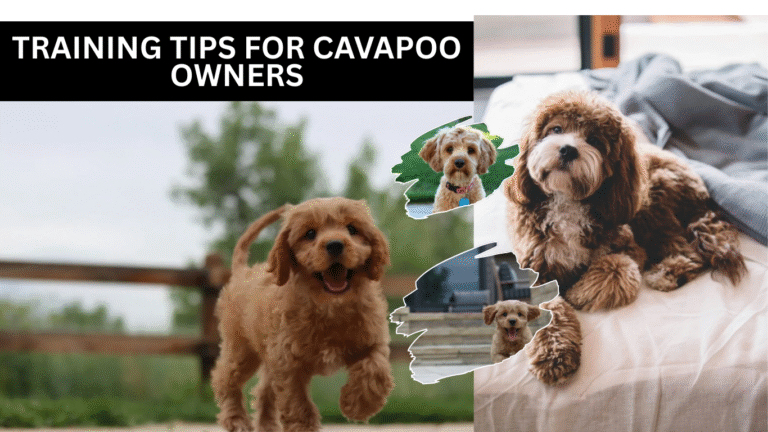8 Mistakes German Shepherd Owners Make That Should Be Avoided
This introduction explains that many owners may accidentally mishandle key parts of caring for a German Shepherd, and it highlights how important the right approach is for such a smart, loyal breed.
Let’s dive into eight mistakes that German Shepherd owners often make and learn how to avoid them. This sentence prepares readers for a list of common errors and encourages them to understand how to prevent these issues.
1. Neglecting Early Socialization

This section describes how failing to introduce a young German Shepherd to new people, places, and animals can lead to an overly guarded or reactive dog. Early exposure helps them learn that the world is safe, which makes them more relaxed and confident as they grow.
Take your puppy to parks, introduce them to your friends, and let them play with other dogs. The more they experience early on, the better they’ll handle new situations later. Think of it as giving them a “social butterfly” starter kit.
This paragraph encourages taking the puppy to different environments so they can learn to handle new sights and sounds comfortably instead of reacting fearfully.
2. Inconsistent Training

This part focuses on how German Shepherds become confused when rules and commands change. Because they learn quickly, unclear training leads them to form habits that may be difficult to undo later.
Make sure everyone in the household is on the same page with training.
Use the same commands and reinforce the same behaviors. It’s like teaching a kid – consistency is key, or they might end up thinking that “sit” means “run around like crazy.”
This paragraph explains that all family members must use matching cues so the dog understands exactly what behavior is expected.
3. Insufficient Exercise

This section explains that German Shepherds become restless and destructive when they don’t burn off enough energy. Their active nature requires owners to commit to regular physical activity.
Daily walks, runs, and playtime are essential.
These dogs excel in activities like agility training and fetch, so keep them busy. Imagine having a super-athlete sitting at home all day with nothing to do – not a pretty picture, right?
This paragraph encourages daily physical outlets to prevent frustration and destructive behaviors.
4. Ignoring Mental Stimulation

This section highlights that exercise alone isn’t enough for this highly intelligent breed. Without mental challenges, they may become bored and start unwanted behaviors. Puzzle toys, training games, and teaching new tricks can keep their minds sharp. Think of it as giving them a Sudoku puzzle instead of letting them watch TV all day.
A bored Shepherd might find their own fun, which usually involves chewing up your favorite shoes. This paragraph encourages mentally engaging activities to keep the dog motivated and out of trouble.
5. Poor Diet and Nutrition

This section explains that feeding low-quality food can harm a German Shepherd’s energy, health, and overall well-being. A better diet helps them stay active and strong. Ensure their diet includes high-quality proteins, fats, and essential nutrients.
Consult your vet to create a balanced diet plan. Remember, you wouldn’t fuel a Ferrari with cheap gas, so why treat your Shepherd any differently? This paragraph encourages choosing nutritious meals and working with a vet to keep the dog healthy.
6. Lack of Leadership

This part discusses how German Shepherds need confident guidance from their owner. Without clear direction, they may try to take control themselves. Be firm, consistent, and confident in your training.
They need to know who’s in charge – otherwise, they’ll happily take the lead, and you might find yourself being herded around the house.
This paragraph encourages staying steady and clear so the dog learns to follow, not lead.
7. Not Providing a Job
This section explains that German Shepherds feel happier when they have a role or activity to focus on. Having a purpose helps reduce anxiety and restlessness. These dogs love having a job to do. Without a purpose, German Shepherds can become restless and anxious.
Whether it’s participating in dog sports, helping with household tasks, or learning new commands, keep them engaged.
This paragraph encourages giving them responsibilities or tasks so they stay mentally and physically satisfied.
8. Overlooking Health Checkups

This part reminds owners that German Shepherds are prone to certain medical issues, and regular vet visits help detect problems before they worsen. Regular vet visits are crucial to catch any health issues early. German Shepherds are prone to certain conditions like hip dysplasia and bloat.
Regular checkups, vaccinations, and preventive care can help keep them healthy.
This paragraph stresses staying on top of health care to maintain long-term well-being.
How to Train a German Shepherd
This section explains that training works best when owners understand the breed’s intelligence, energy, and natural instincts, and use methods that match these traits.
- Start Early: Begin training your German Shepherd puppy as soon as you bring them home. Puppies are more adaptable and can learn new behaviors quickly. This explains that early training leads to better behavior because puppies learn fast.
- Basic Commands: Teach basic commands like sit, stay, come, and down. These commands are the foundation of all future training. This highlights the importance of simple commands as the building blocks for more skills.
- Socialization: Expose your German Shepherd to different environments, people, and other animals early on. This stresses that social experiences prevent fear and aggression later.
- Crate Training: Crate training provides a safe and secure space for your German Shepherd. This explains that a crate helps with good habits and prevents damage when unsupervised.
- Leash Training: Teach your German Shepherd to walk on a leash without pulling. This discusses building calm walking habits through patience and rewards.
- Mental Stimulation: Keep your German Shepherd’s mind engaged with puzzle toys, obedience training, and interactive games. This explains that mental activity is just as important as physical exercise.
- Advanced Training: Once your dog has mastered the basics, move on to more advanced training. This encourages adding challenges like agility or advanced obedience.
- Consistency and Patience: Be consistent with your training methods and patient with your dog. This highlights that steady training helps reinforce good habits.

Conclusion of Mistakes German Shepherd Owners Make
The closing paragraph explains that avoiding these common mistakes—and providing good training, mental challenges, healthy food, clear leadership, and regular medical care—helps raise a well-rounded and happy German Shepherd.










